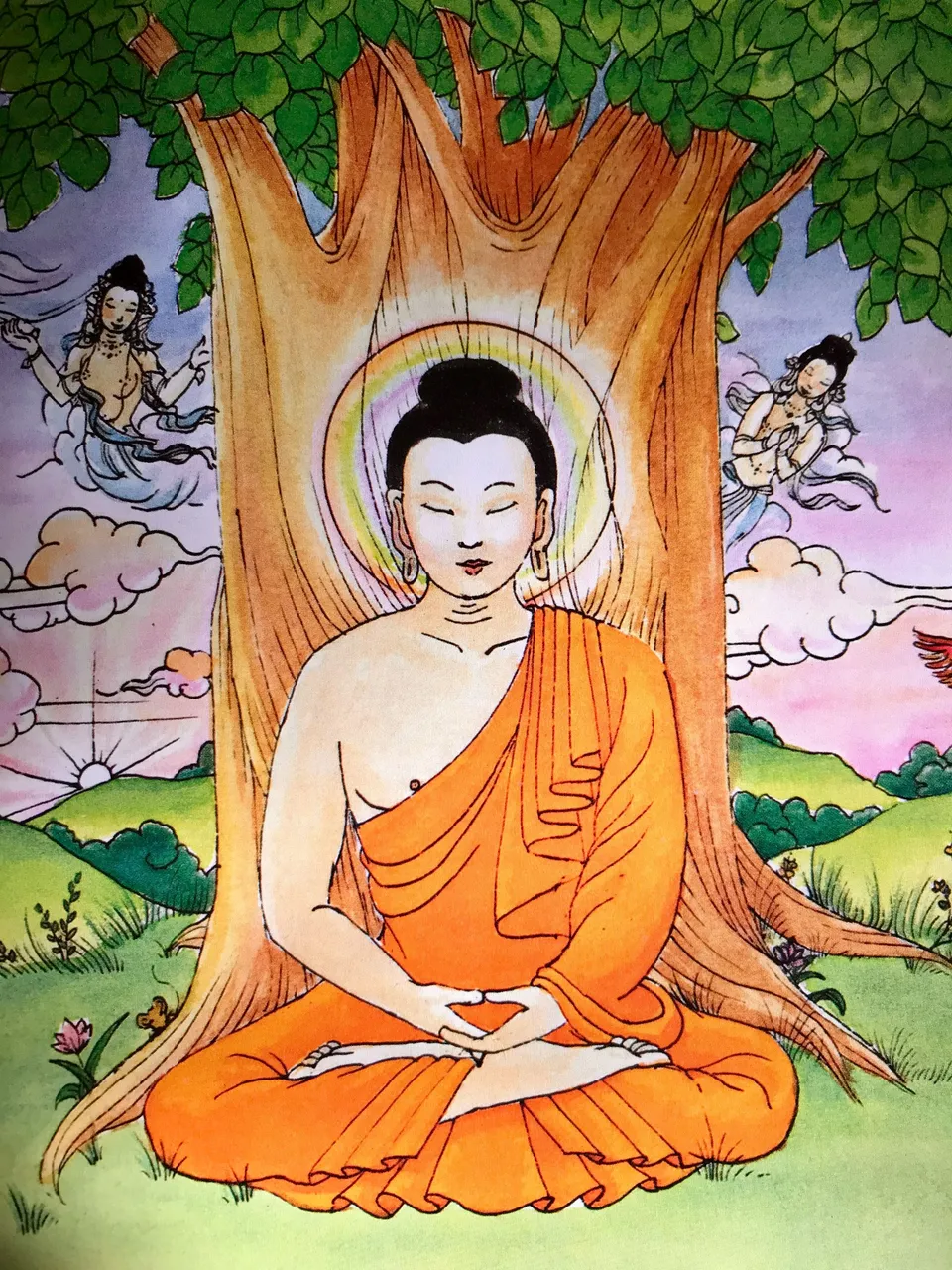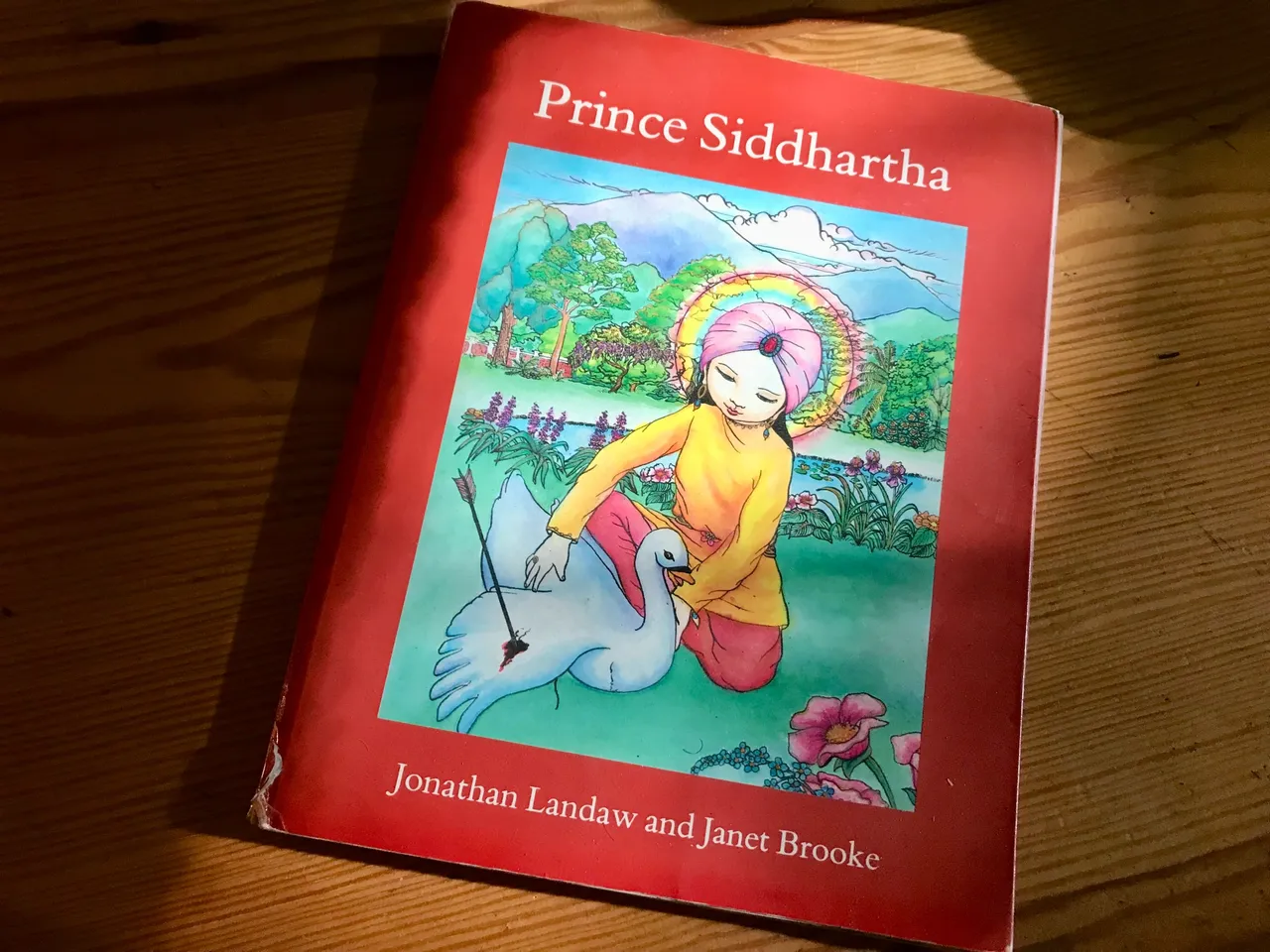
I came across a book for children recently called Prince Siddhartha which tells the life story of Buddha and aside from being profoundly moved by it I noted how much more powerful it was than the life story of Jesus. My entire childhood was focused on Christianity and I have read the bible multiple times, but not once was I ever taught about Prince Siddhartha and the tale of how he came became a Buddha. Ever the sceptic I would argue there is a nefarious reason behind the admission of this incredibly important story from the education of most Western children and society at large is worse off as a consequence.
Before I get into that I want first to show you some of the pages from this beautiful book which I just finished reading to my children last night.
The mother of Prince Siddhartha depicted here, calmly giving birth.
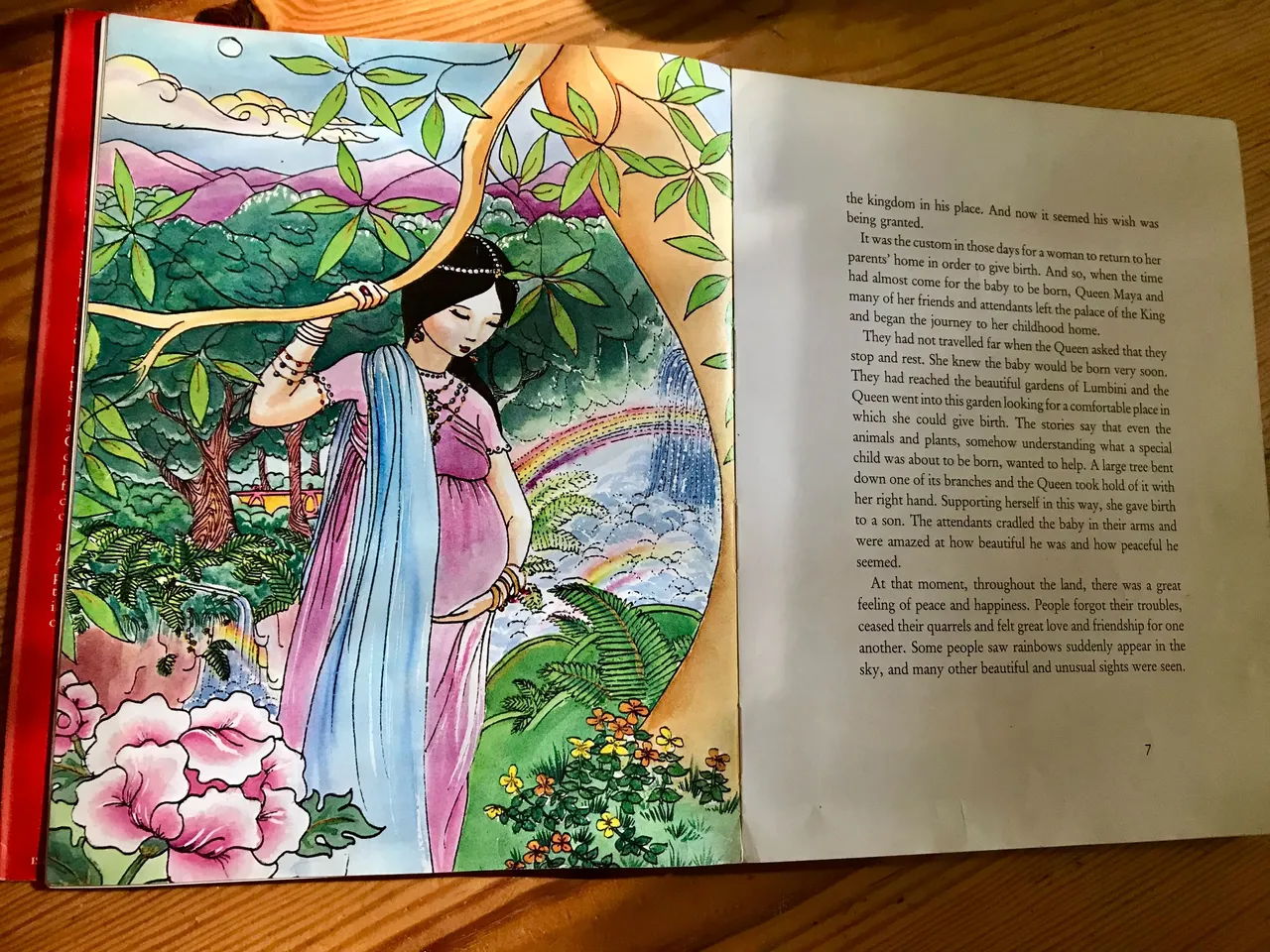
A large tree bent down one of its branches and the Queen took hold of it with her right hand. Supporting herself in this way, she gave birth to a son. The attendants cradled the baby in their arms and were amazed at how beautiful he was and how peaceful he seemed.
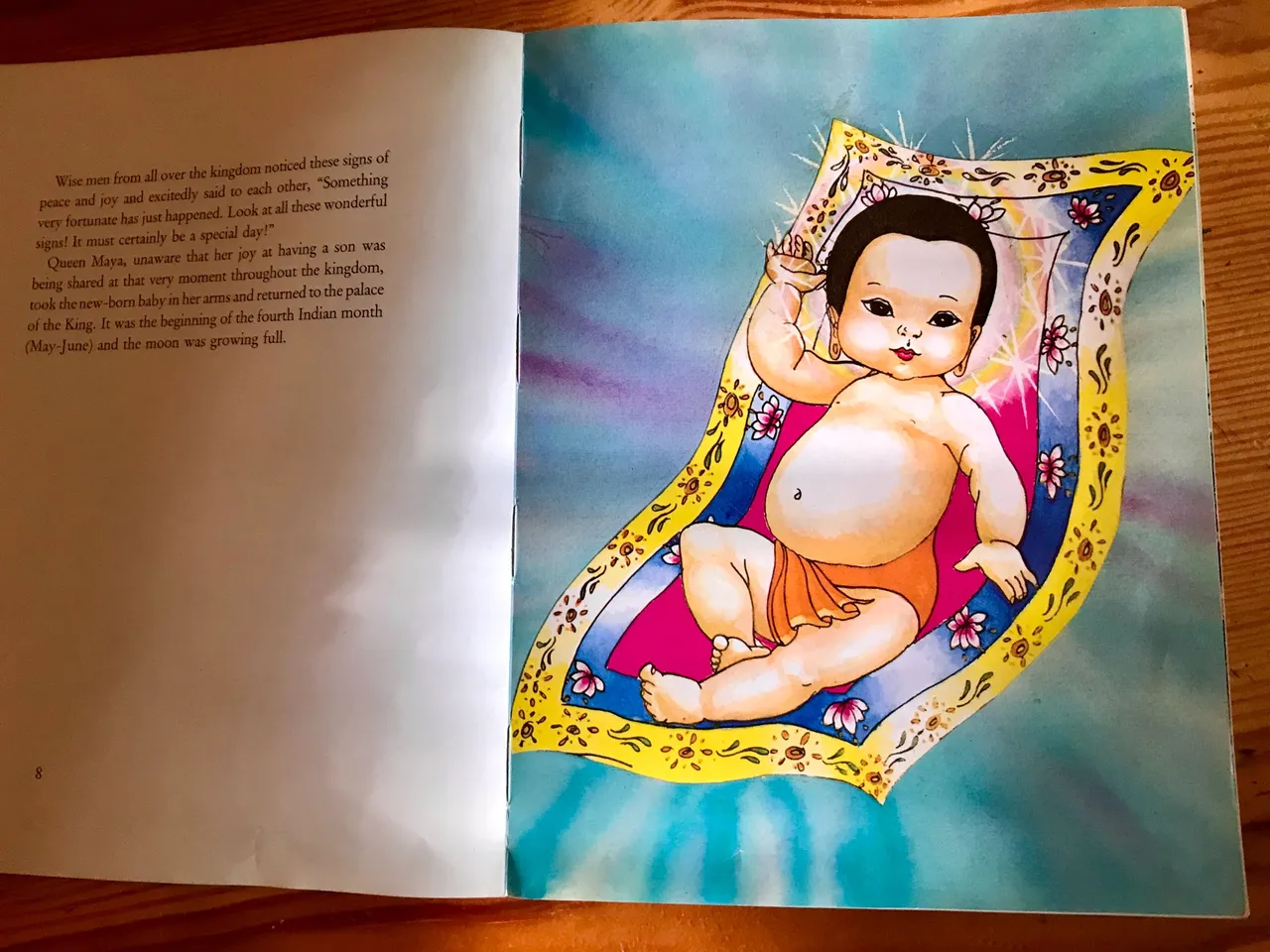
Wonderful art I think you will agree. Always depicting the Buddha with a halo around his head.
I enjoyed so many of the messages within this book but particularly the contrast between the many years spent within his pleasure palaces...
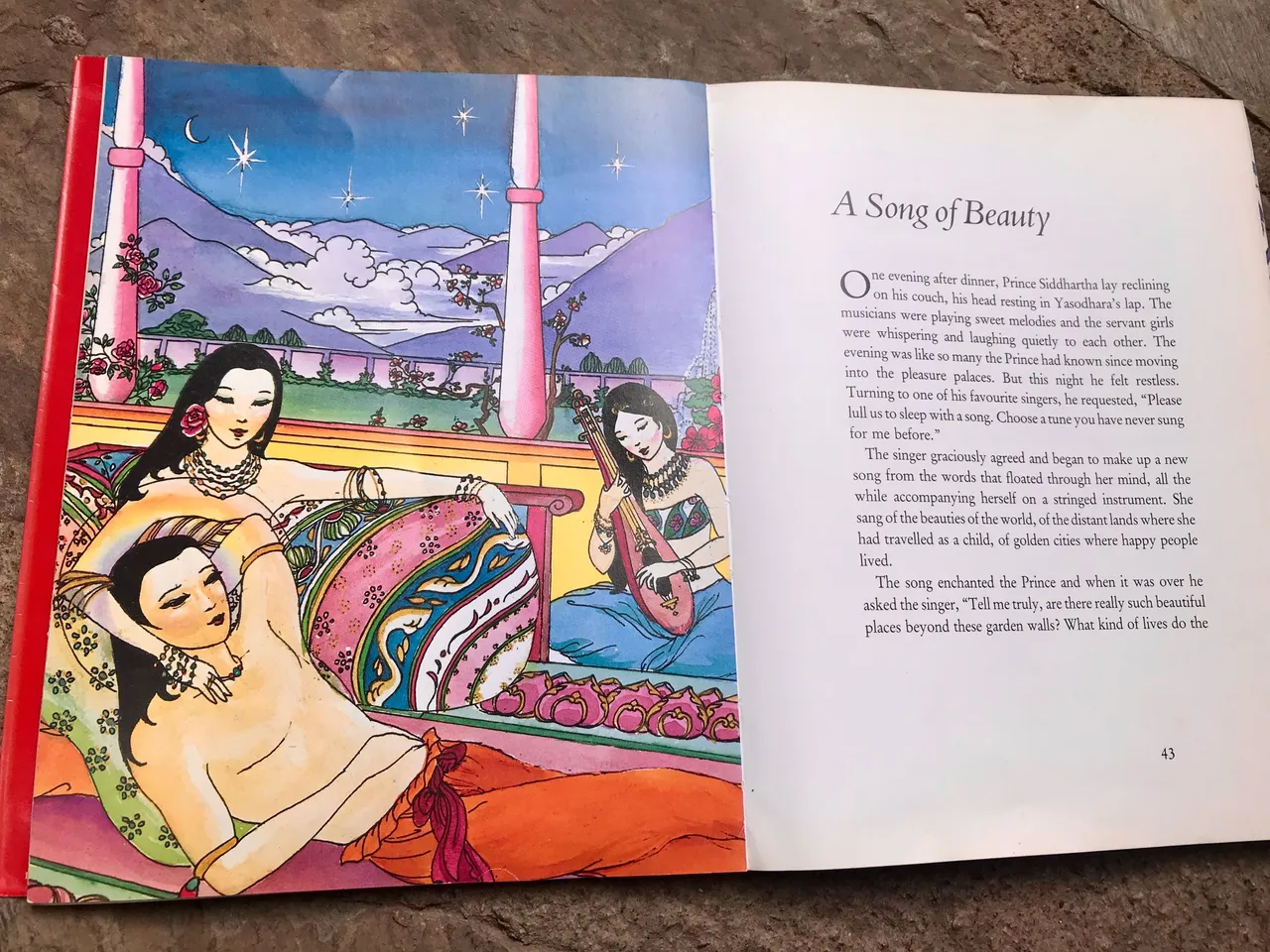
...and the six years spent meditating in the wild & eating only the seeds which fell into his lap.
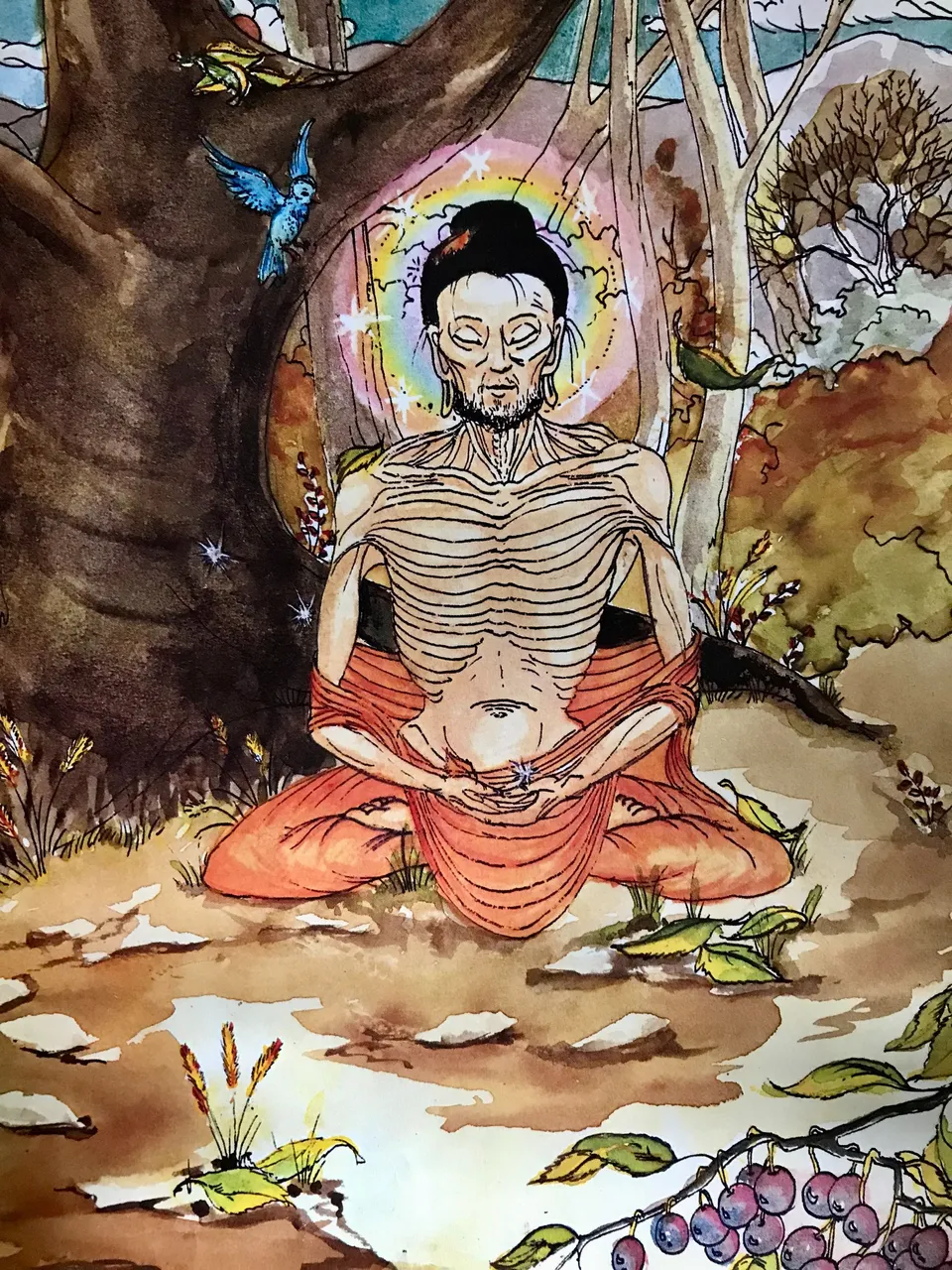
I had no idea he almost died on his quest for truth!
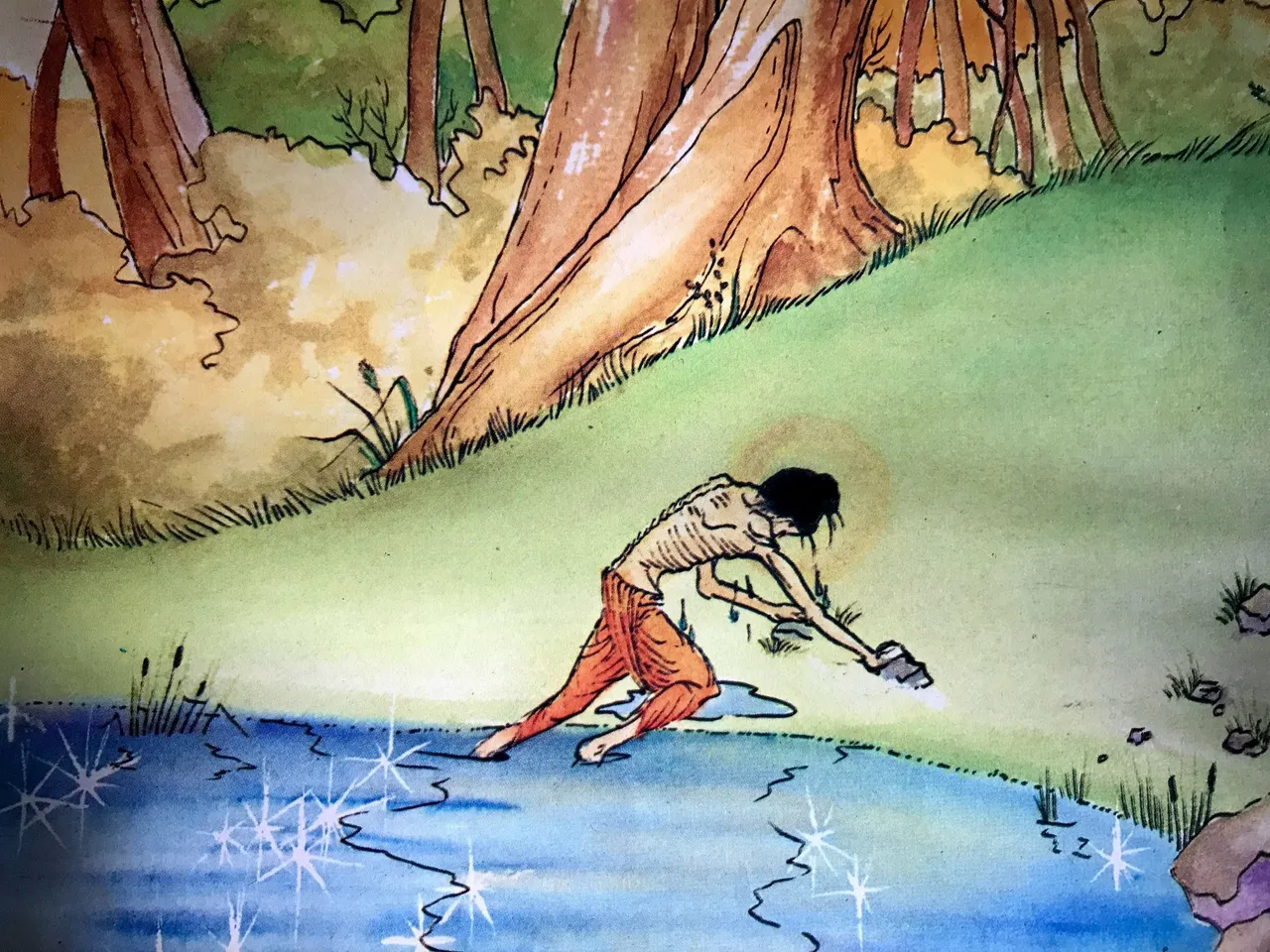
But only in this manner could he find the middle way and had either of these extremes not been present in his life, his mission would have been unsuccessful.
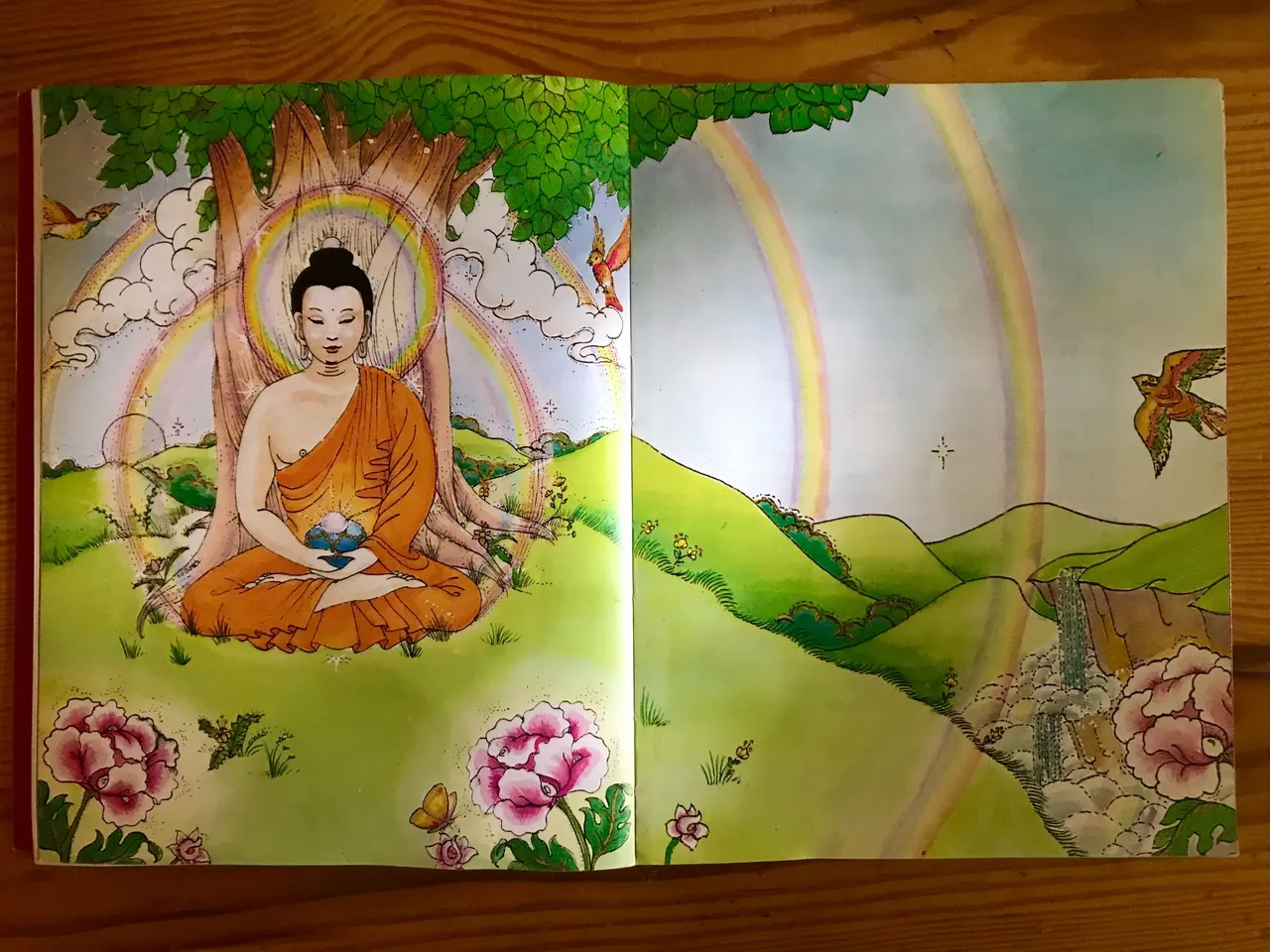
I also particularly enjoyed the story of his father who wanted so much for his son to stay with him and tend to the kingdom rather than follow the life of a homeless holy man.
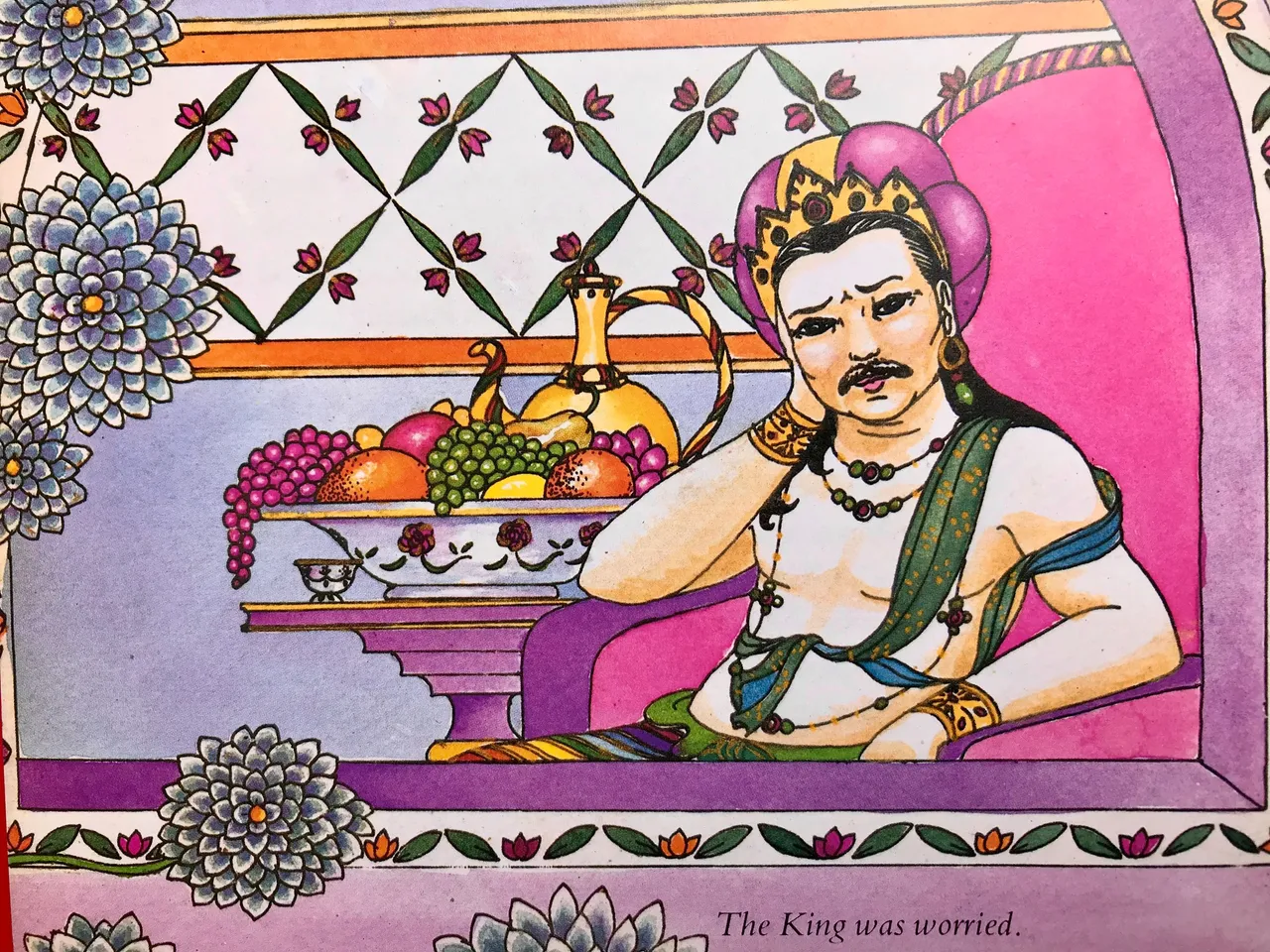
So desperate he was to control the fate of his son that he created a fake reality in which old and sick people were removed from sight. Even the wilting flowers were removed at night and the Prince grew up knowing only this reality of consistent youth & perfection.
But eventually of course he ventured outside the palace...
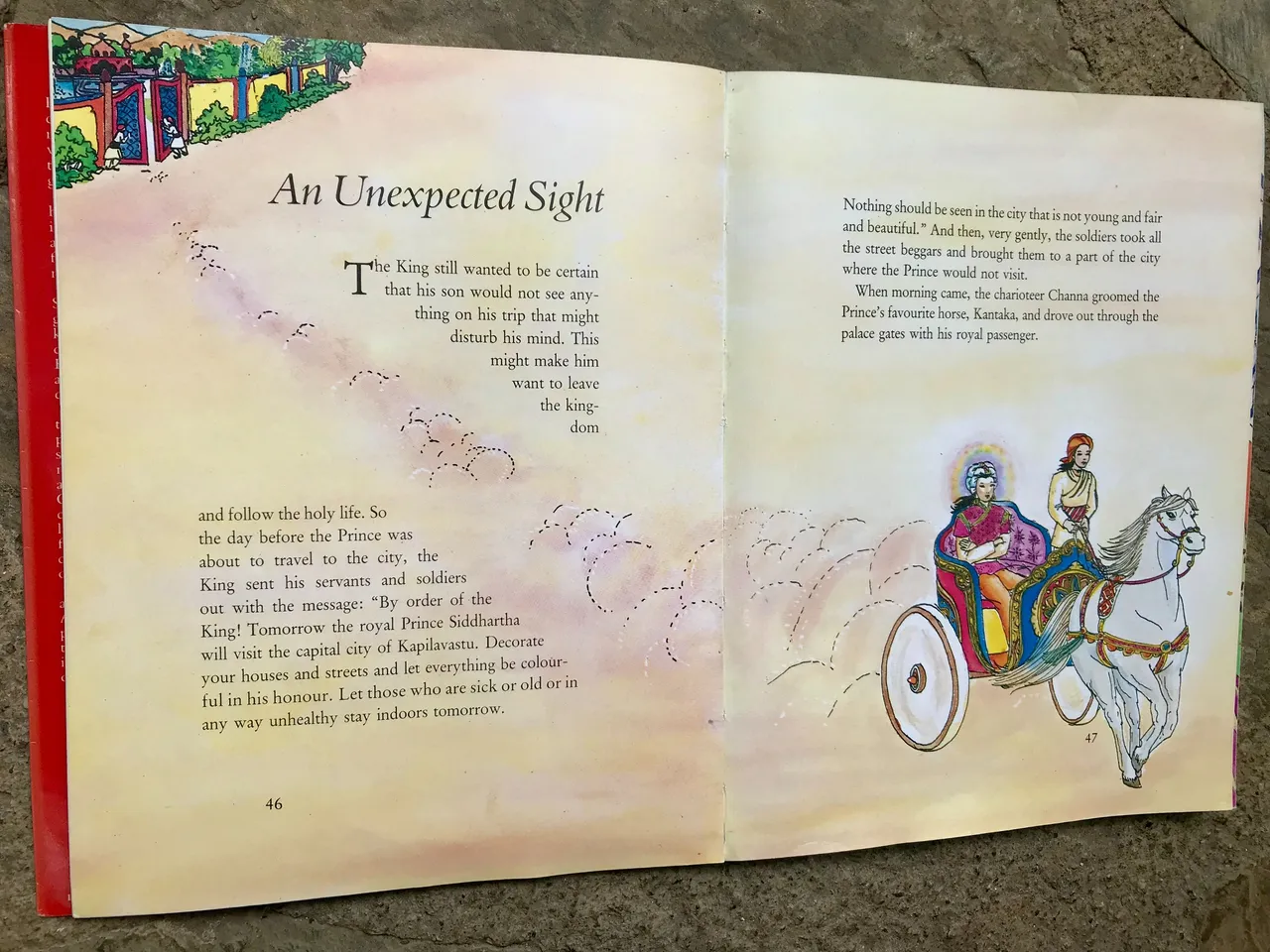
...and even though the King tried his best to continue the illusion everywhere his son went, the Universe ensured the young Prince saw what he needed to see.
A beautiful message which as a father I feel as if I understand better. Indeed, we cannot control the destiny of our children. Only guide them. And if we do try, the Universe will correct the balance.
If you are not already familiar with this story, I should probably mention that the Universe shows our young Prince Siddhartha a sick, an old and a dead person on each of his three trips outside the palace. And finally the illusion is broken.
After meditating on his new reality the Prince goes to his father with the following question:
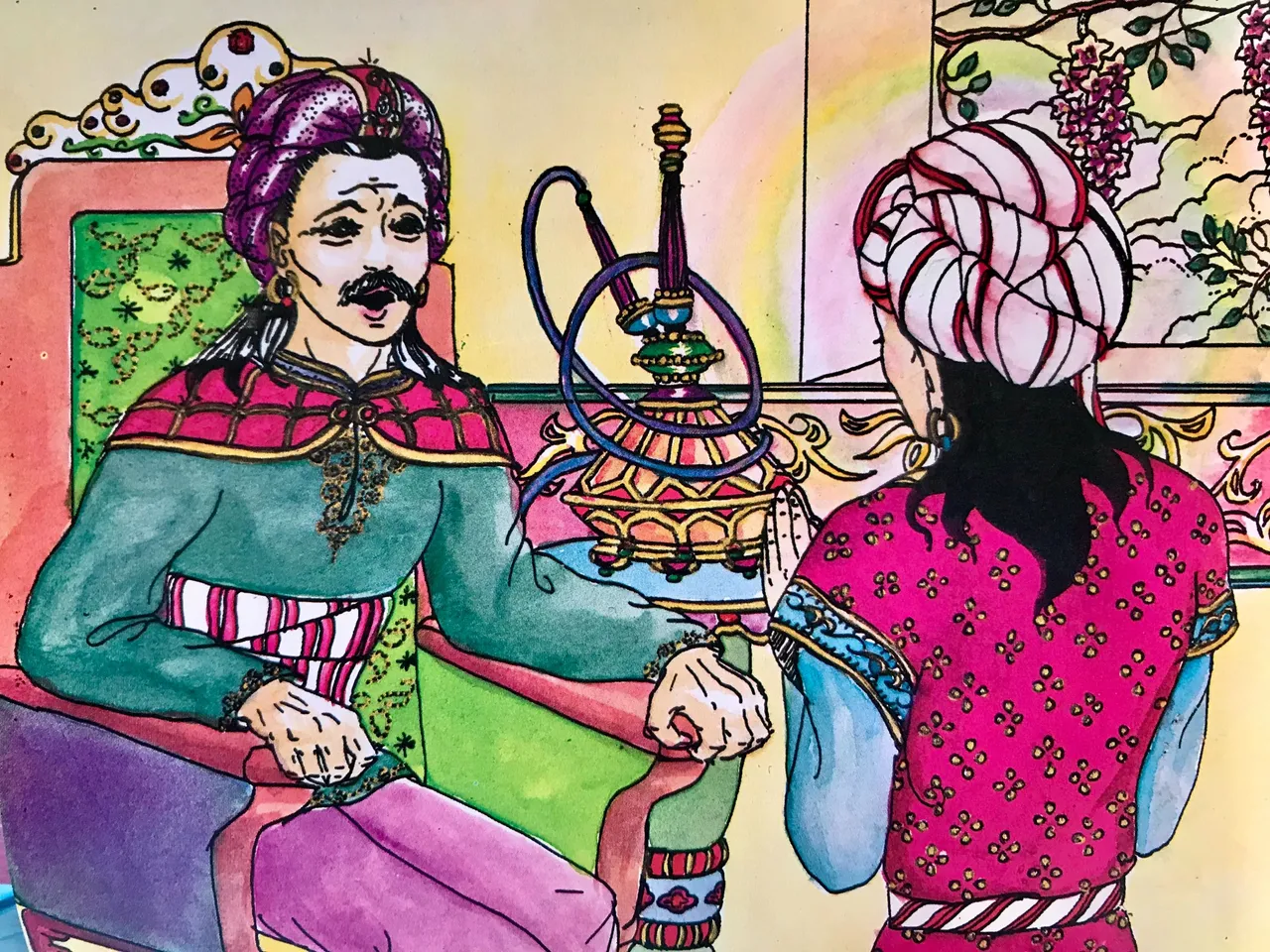
“O Father, I shall stay here only if you can promise me four things. Tell me that I shall never grow old, that I shall never become ill, that I shall never die, and that I shall never be unhappy. If you cannot promise me these things, then I must leave immediately.” The King was shocked by these strange words and began to get angry. “Forget these foolish ideas, Siddhartha,” he said loudly. But the Prince remained firm. “Father, if you cannot save me from the sufferings of old age, sickness, death, and unhappiness, then you must let me go and try to save myself. It is not right to keep me a prisoner here.”
His father could not make this promise of course and continued to demand his obedience. And so the Universe created the perfect moment for Siddhartha to escape.
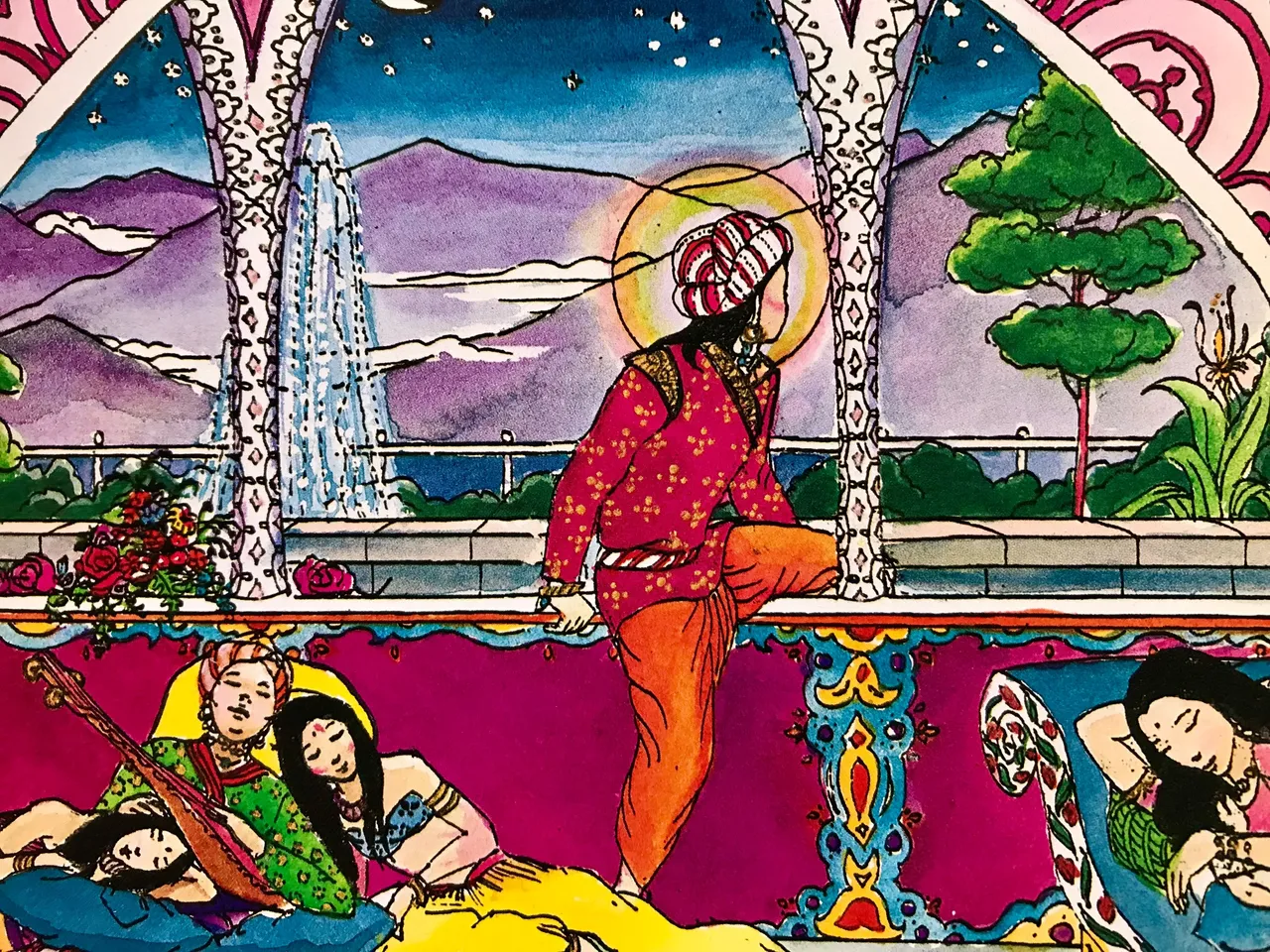
On a great quest to put an end to suffering! Which ultimately he achieved.
The death stories of Christ & Buddha
As beings who must live within mortal skins it is impossible to not be fascinated with the subject of death so the way in which our spiritual leaders meet their end is extremely important.
When Jesus was about to give up his life on the cross (after being betrayed by the people he loved) he said this:
"My God, my God, why hast thou forsaken me? Father, unto thy hands I commend my spirit. It is finished."
There is a feeling of hopelessness to his last words which seem out of sync with the overall message of his life. Yet that is what we are given.
Personally I was so struck by the crucifixion story that at the age of twelve I painted this image and stuck it to my wall throughout my teenage years to remind me of his sacrifice and keep my behaviour in check.
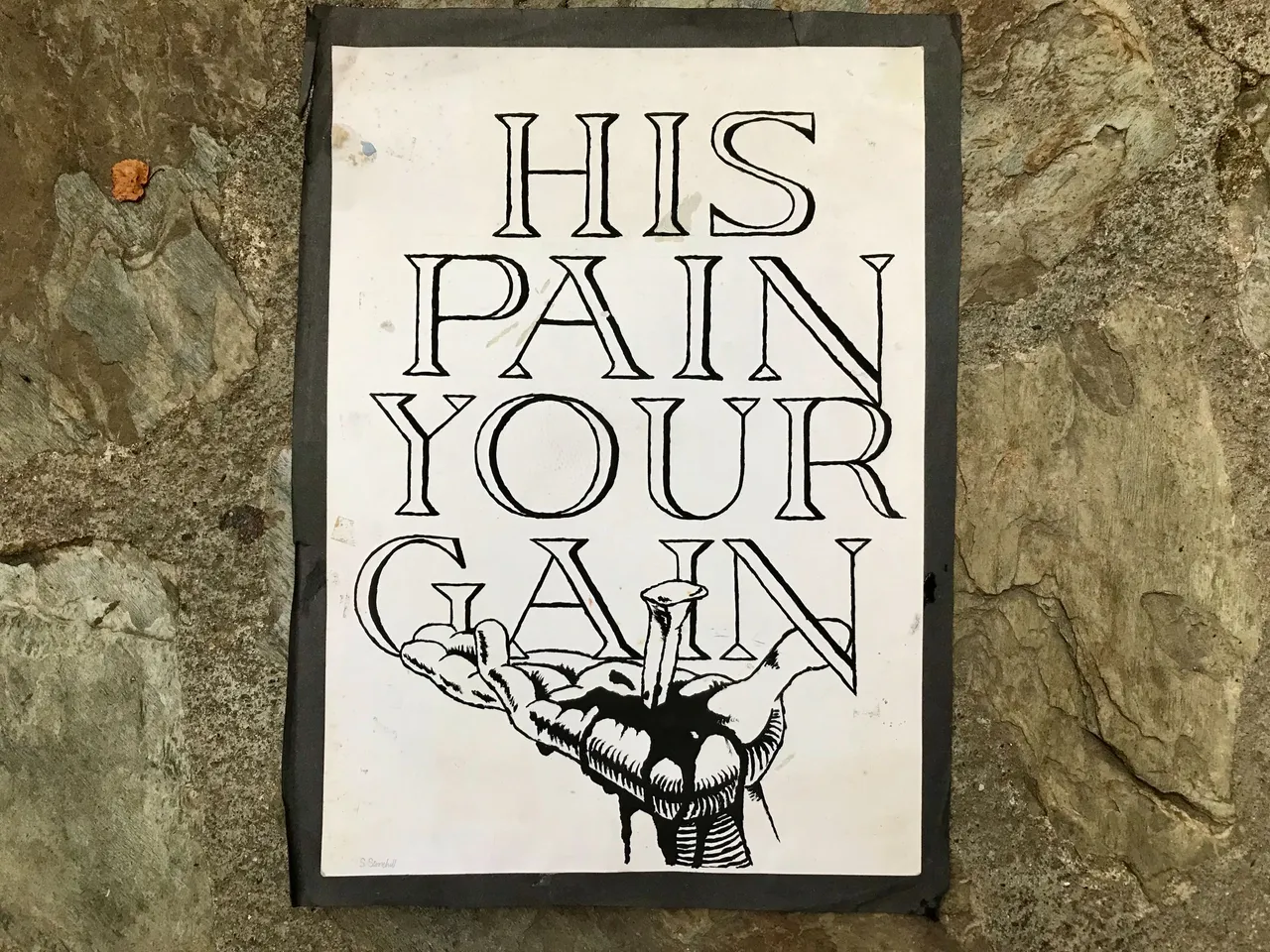
It isn't an original piece but I'm sorry to say I can't remember where I copied it from.

Regardless, taking the time to copy such a thing and place it on my wall for so many years is evidence enough of how deeply this story affected me.
This and the concept of hell which has the capacity to dominate a young person's life when they are taught to fear it as I was.
So, now let's check out the death of Buddha.

Then Buddha spoke for the last time. “Remember what I have taught you. Craving and desire are the cause of all unhappiness. Everything sooner or later must change, so do not become attached to anything. Instead devote yourself to clearing your mind and finding true, lasting happiness.”
Buddha then turned onto his right side and placed his right hand under his head. He closed his eyes and very peacefully passed away.
The difference between these two deaths is vast and I am wondering if I had been taught the story of Buddha in place of the story of Jesus, what a different life I may have had? Of course, understanding now the importance of extremes on our journey to find the balance, I am able to let it go, but if we apply this thought to the world's largest religion (Christianity) I cannot help but wonder if this hasn't had an effect on pretty much every aspect of life on Earth?
The prison disguised as freedom
Christianity has been permitted to become the number one religion in the world because it subtly teaches servitude over freedom, while also encouraging the ego-based age of materialism.
Who is more free? The man who buys his food every day from the shops with a sense of satisfaction for the cycle of work, money & food on his table or the man who has no money and begs for his food every day with nothing more than humility & gratitude in his heart?
Buddhism encourages a simple life without material possessions or emotional attachments and while Christianity doesn't necessarily encourage the opposite of this, it is very possible to be a multi-millionaire business tycoon with mansions on every continent and a life filled with materialistic possessions & emotional attachments while at the same time upholding the values of a Christian. Come to think of it, wealthy materialistic tycoon Christians are regarded in high esteem by many these days. Trump comes to mind straight away.
Buddhists shave their heads and wear the same clothes so there is no sense of inequality or chance for comparison when they meet. While Christians are encouraged to wear their best suits at church every Sunday so they may get a sense for how well (or not) each family is doing in the money department.
I know it's subtle but can you see how this opportunity for comparison basically just encourages matters of the ego which lead to competition and materialism? While Buddhism encourages the exact opposite. And don't get me wrong, I'm not saying we should all strive to look the same! Just making observations about these two religions.
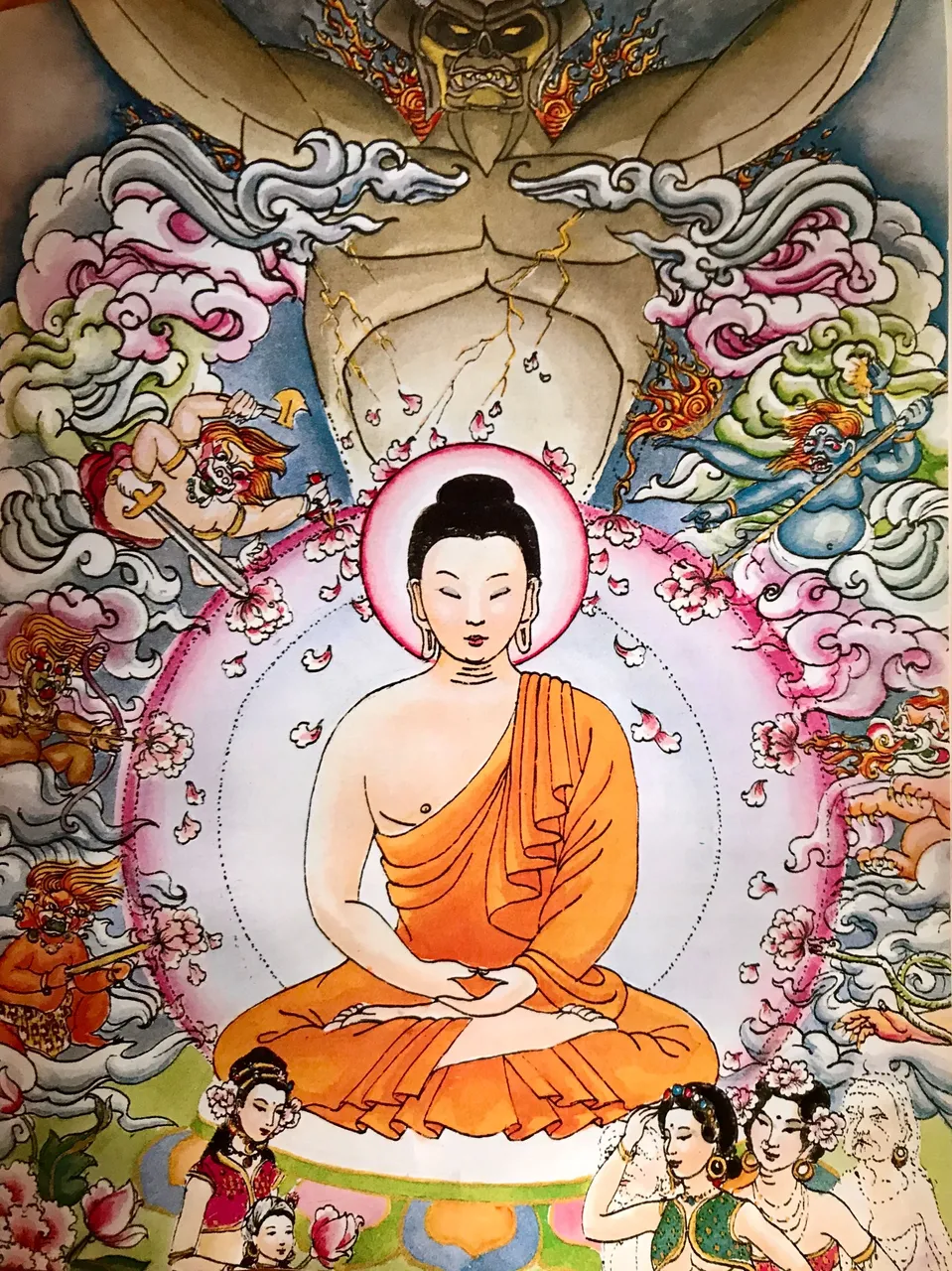
Even the idea of being in debt to Christ (who gave up his life on the cross for our sins) sets us up for a life in which being in debt is considered normal. And living in fear of going to hell is no way to live at all! Yet Christians believe we can expect eternal damnation after death if we don't accept their one 'true' God and stick to his rules in this life. Which basically relaxes us into a life in which sticking to the rules (created by some distant entity) is considered normal.
This is in direct contrast to the teachings of Buddha which not only encourage us to respect other religions & spiritual teachers but more importantly they tell us how the eternal soul is incarnated over and over in multiple physical bodies, ultimately helping us shed our fear of death.
Buddha couldn't care less who we worship and certainly doesn't encourage anyone to worship him. Instead he shows respect to all humans (and animals alike) while keeping his focus on teaching us to live in the here & now, in a way which brings an end to all suffering.
If the USA was full of Buddhists instead of Christians can you imagine what a different place it would be? Perhaps you can't but I would say life would be better there. A lot better!
You see, the ego-based age of materialism goes hand in hand with our current subjugation and the drive towards a new digital era, the Fourth Industrial Revolution. And our obedience is required! But you cannot sell this dream to a Buddhist. While a Christian can remain true to his religion all the way to his transhumanist/cyborg future.
You can download a PDF of the book Prince Siddhartha from here. I highly recommend you get familiar with this story if you don't already know it.
Looking forward to hearing your thoughts.
Love & Light everyone 🌱
